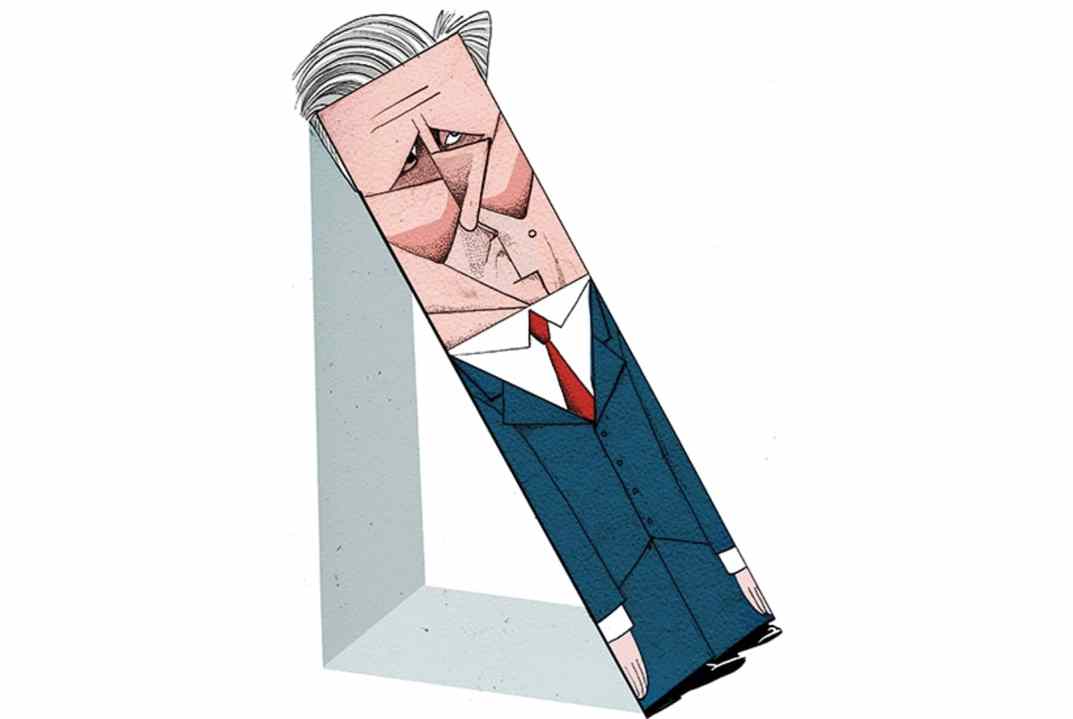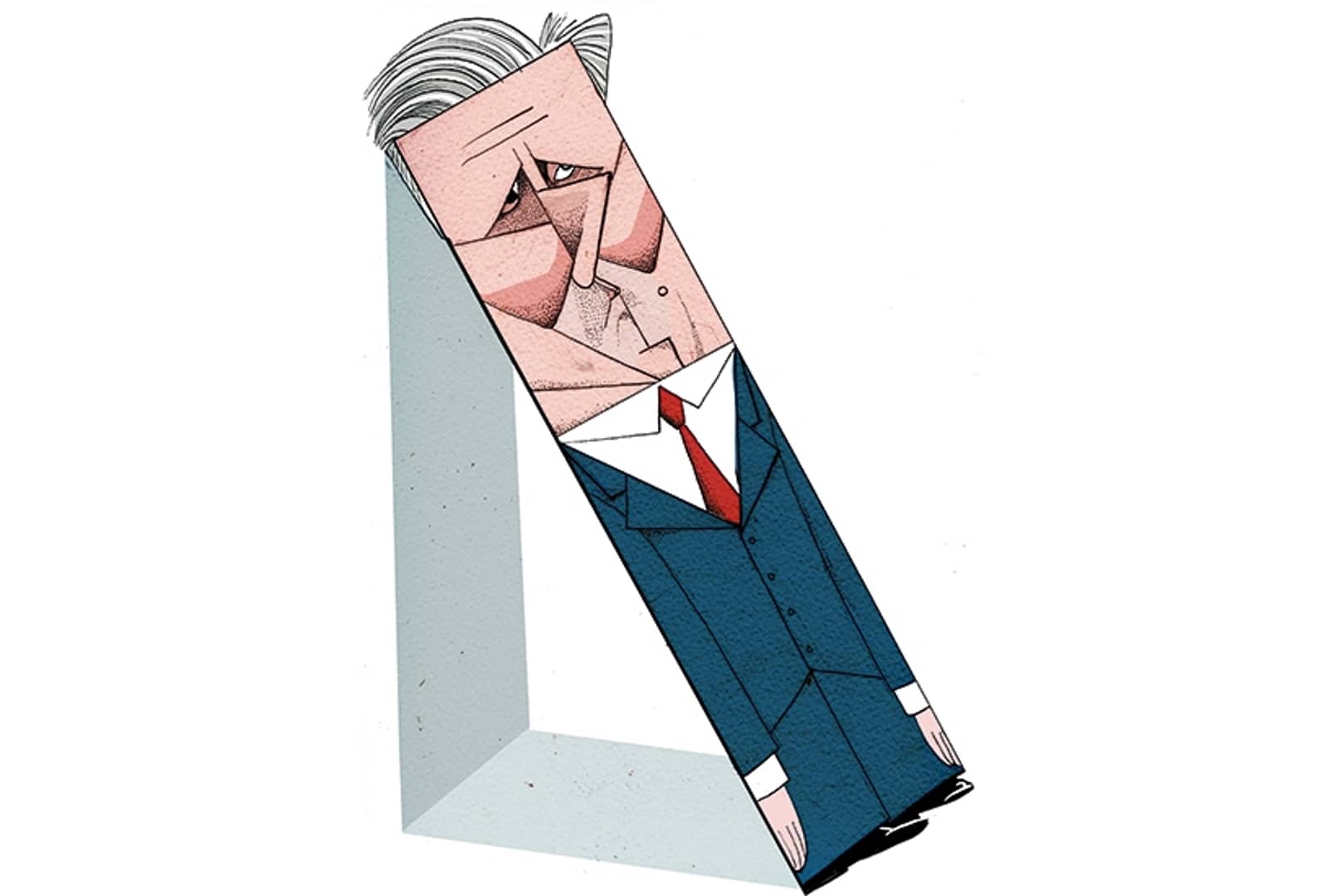Even before the embargo was lifted on Keir Starmer’s much-trailed and super-long Fabian pamphlet, The Road Ahead, commentators and critics were already putting the boot in. By writing his 12,000 words or so, all the Labour leader had seemingly achieved was the creation of a consensus, one stretching from the Spectator to the Guardian, that all he had painfully gestated was a cliché-ridden disaster, groaning with platitudes stolen from focus groups. The best thing that was said about it was that the pamphlet was so long and so turgid, hardly anybody would read it.
How many ideas a party leader requires to be effective, and from where they should come, is a matter of debate – but how many words they need to communicate them is not. For Boris Johnson ‘Get Brexit Done’ was apparently enough to secure an 80-seat majority in 2019. Glib though Johnson might have been, the chorus greeting Starmer’s pamphlet went, but at least people knew what he stood for. In contrast the Labour leader’s effort was mocked for its inordinate length and attacked for its lack of clarity.
Given the fluidity of voter’s party loyalties, there is no reason to believe that should he hone his message further ‘Security’ Starmer might not make inroads into ‘Crisis’ Johnson’s current lead
Starmer was probably hoping for a more positive response than this. He likely prayed that the Road Ahead’s publication of the eve of his party’s annual conference would give his members a clearer sense of purpose and help confused voters better appreciate what he stands for. No one pamphlet can however do that work on its own: if its contents are to bear fruit it has to form part of a longer and more laborious process, which to the frustration of impatient journalists usually involves the repeated repetition of its key concepts.
And it is not hard to see what is the big idea that lurks in Starmer’s prose: it is ‘security’. Starmer expresses this idea in highly significant metaphors and similes which are literally homely. As he puts it at one point, his Labour will create a better Britain, ‘on solid foundations, with security at home, in the workplace, on the streets and from those who would do us harm. … I want Labour to once again be Britain’s bricks and mortar – a symbol of solidity, reliability, shelter and the prospect of building something new and better.’ These are deliberately comforting tropes, ones consistent with his other emphasis in the pamphlet, on the importance of the family.
If this makes Starmer sound conservative, then that is deliberate as if he has any hope of forming a government Labour needs to win back those retired home-owners in the Red Wall constituencies who backed Boris in 2019. Even so, his aim of building a secure Britain is underpinned by fairly traditional Labour means, such as government planning and intervention in the economy, increasing opportunities for all with the aim becoming a fairer society, in the belief that this in turn will make Britain as a whole more prosperous. And the promise of ‘security’ is used to legitimise a radical ‘New Deal for Working People’ one that will increase the minimum wage, ensure all workers’ entitlement to rights like parental leave while banning ‘fire and rehire’ practices and making it easier for employees to be represented by a trade union. Significantly these are the very few concrete policies contained in the pamphlet.
Starmer’s case for arguing for security however rests on a big assumption: that the pandemic has changed how Britons think, that they are now aware of the consequences of years of Conservative austerity and lack of planning, which meant the economy and health service were amongst the least prepared in the West to deal with the crisis. His whole pamphlet is based on the hope the British are now willing to put aside cultural and nationalist divisions and forget about being having been either Leave or Remain.
Much of what is contained in the Road Ahead will be familiar to those who have followed Starmer’s speeches very closely – which means hardly anybody at all – and draws together and emphases consistent tropes found within them that aspire to address voters’ concerns from across the generational and cultural divide. In the end it all comes down to ‘Security for All’, which would have been a much better title for the pamphlet and might yet be Starmer’s catch-phrase. For if you want excitement, you have Boris Johnson and as he points out in the pamphlet, look where there that has got you: the promise of ‘Sunny Uplands’ and ‘Levelling Up’ but a reality of crisis upon crisis.
Given the fluidity of voter’s party loyalties, there is no reason to believe that should he hone his message further ‘Security’ Starmer might not make inroads into ‘Crisis’ Johnson’s current lead, as he did during the height of the pandemic in 2020. For promising security might not be exciting but it can be effective in the right circumstances. During the crisis-bound interwar years David Lloyd George, the ‘Welsh Wizard’ beguiled and fascinated voters. But the most successful party leader of that era was the dull, stolid, pipe-smoking Stanley Baldwin, who promised peace over conflict, and whose slogan at one point was ‘Safety First’.







Comments